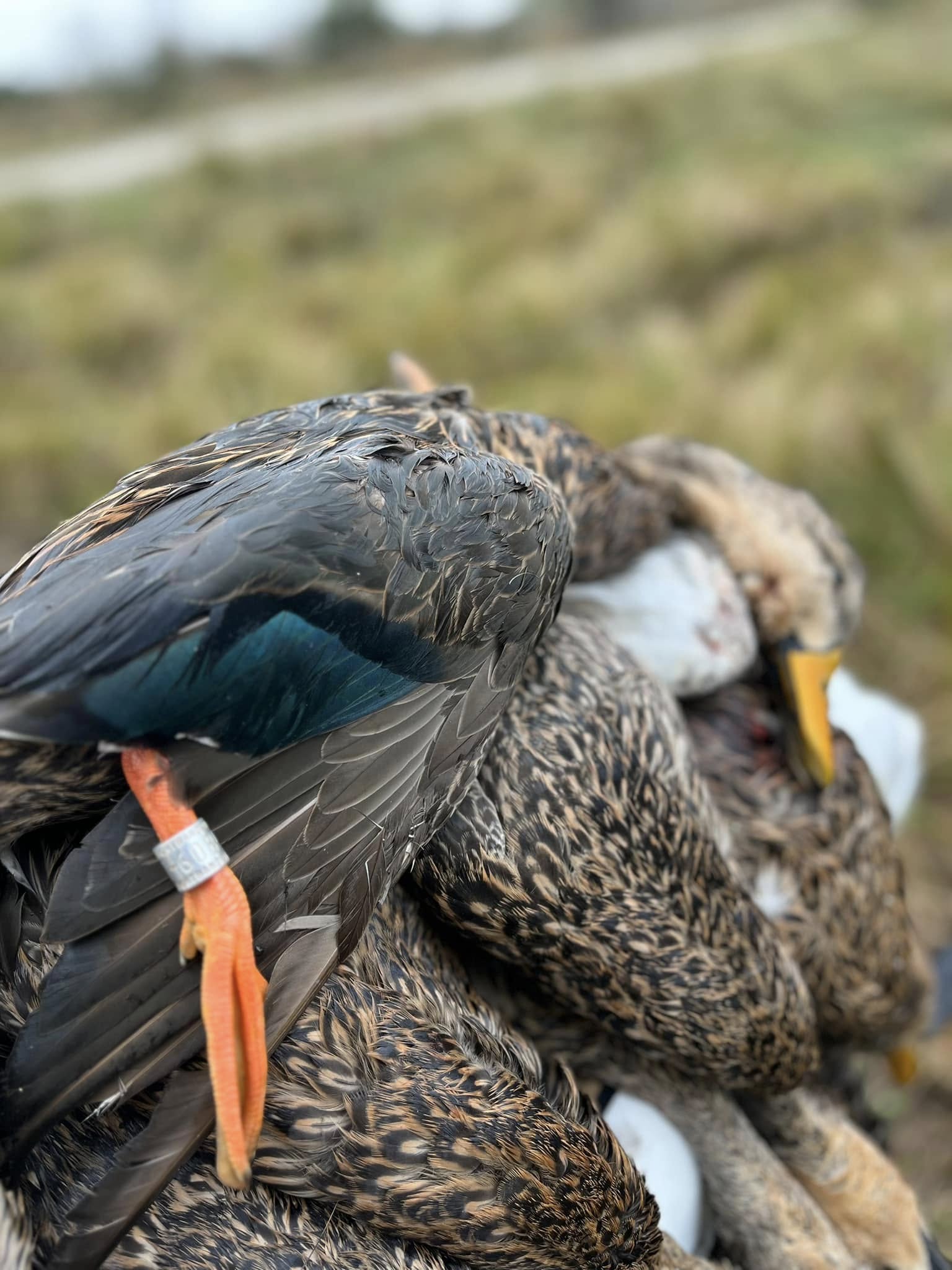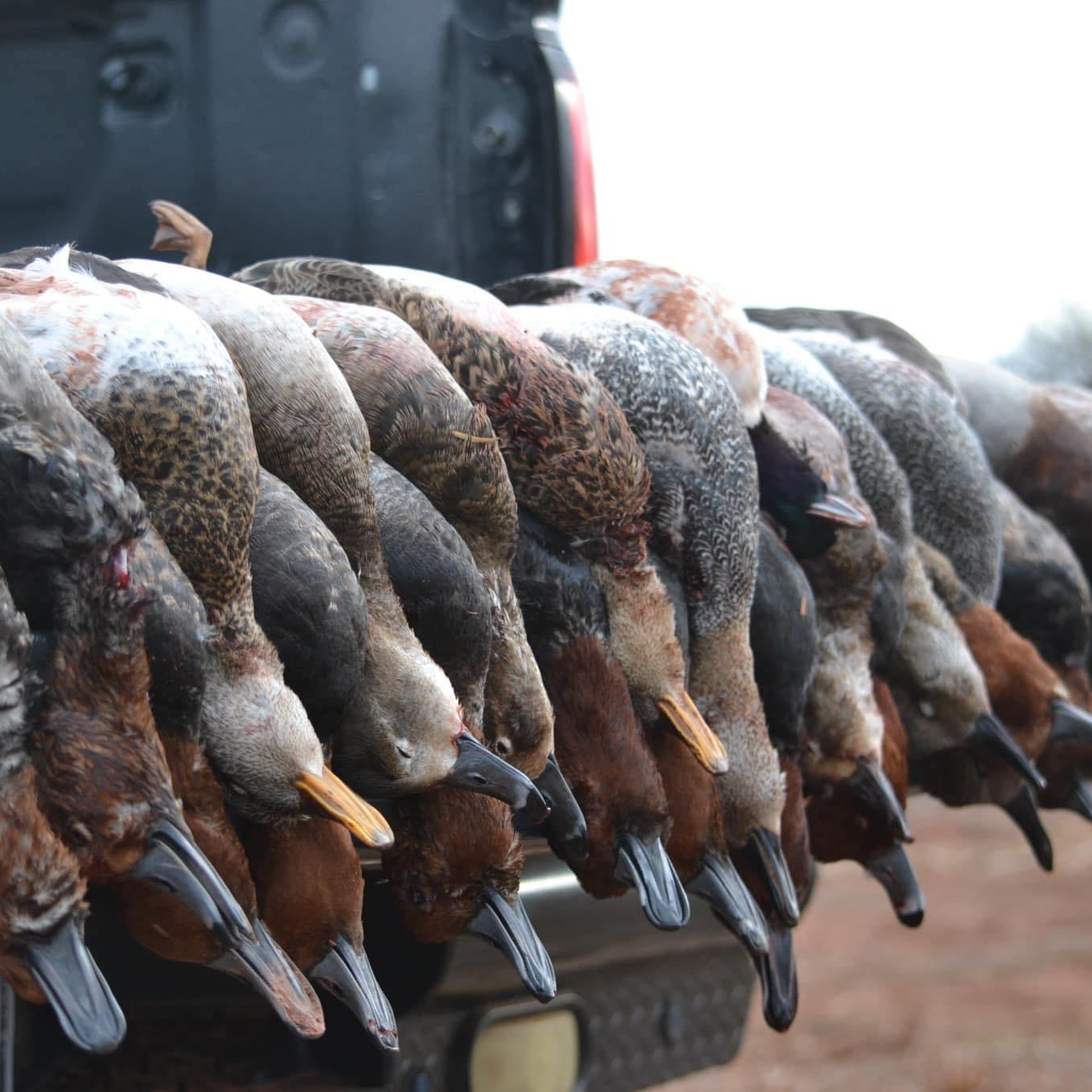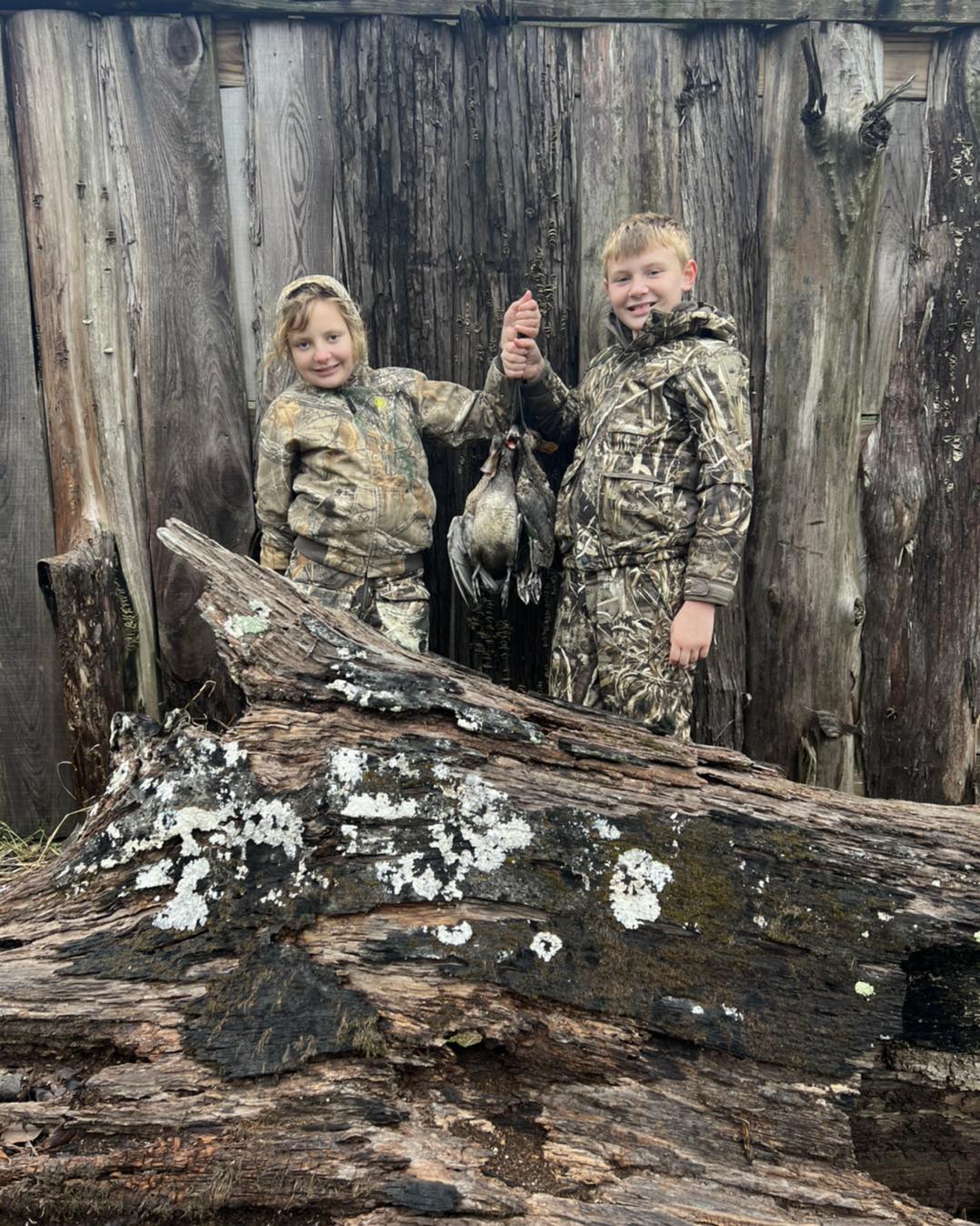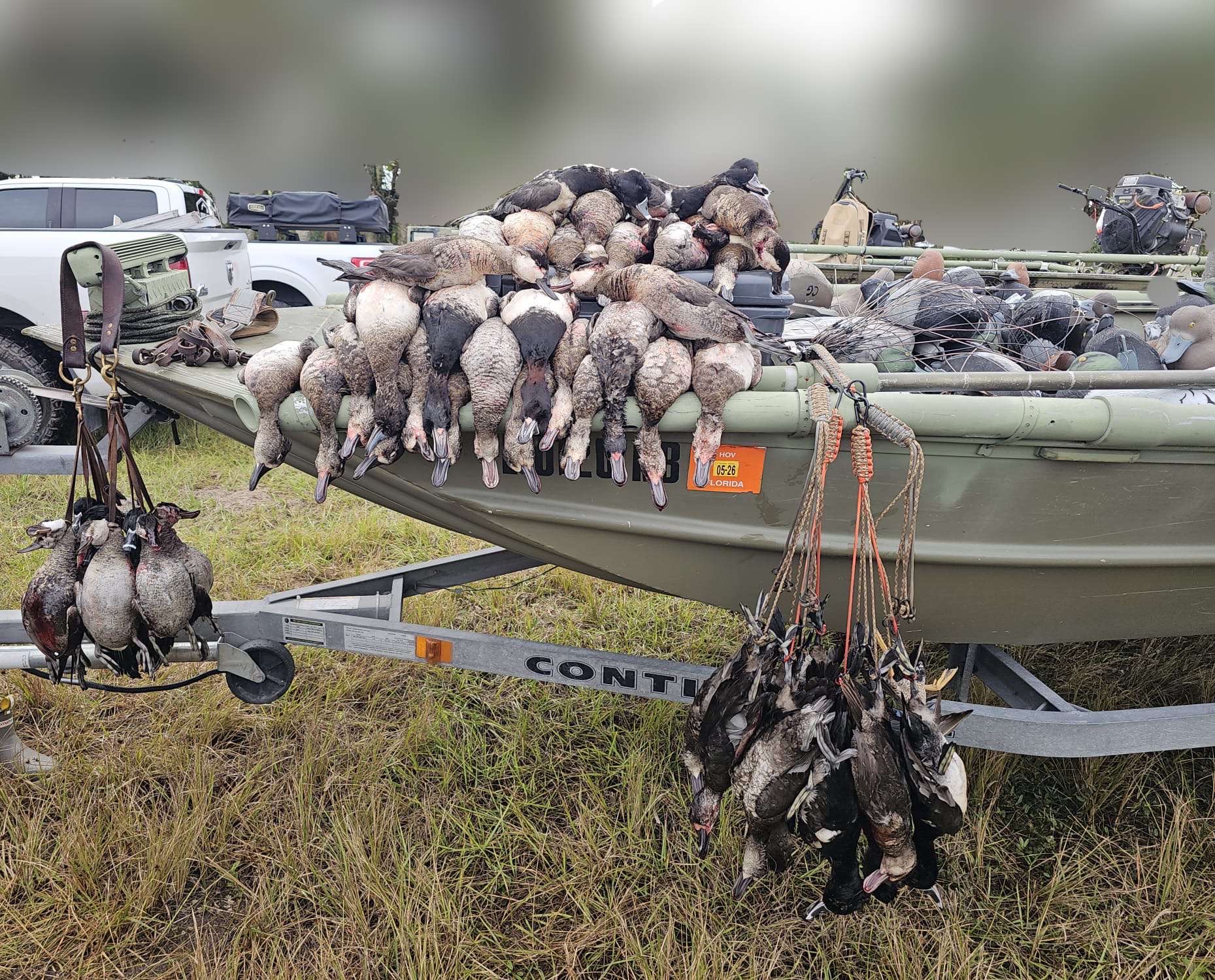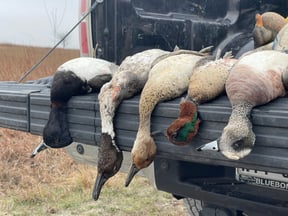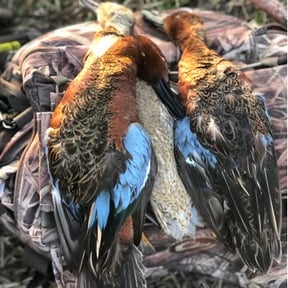Lake Okeechobee Duck Hunts
Abilene TX Duck Hunts
Central Texas Duck Hunts
Delacroix Duck Hunting
Central Lousiana Big Duck Hunt
Garwood TX Duck Hunts
Duck, Upland, Dove in José Silva Sánchez
Ducks, Dove & Quail
Duck Hunting
Deering, Missouri Duck Hunts
TX Marsh And Bay Duck Hunts!
We started Captain Experiences to make it easy to book fishing and hunting guides around the world. With over 2,000 Damn Good Guides, our platform makes finding and booking a trip seamless. Head here to check out our trips.
With duck season well underway, hunters are blessed with the opportunity to sample a variety of ducks. Like all animals, the dietary differences between duck species and even individual ducks can be quite different which greatly changes the flavor of the meat. Ducks also migrate at different times which means the flavor of the week is rarely the same. Unfortunately, all ducks are not created equal when it comes to table fare. Similarly, the palate and preference from one hunter to the next is equally varied.
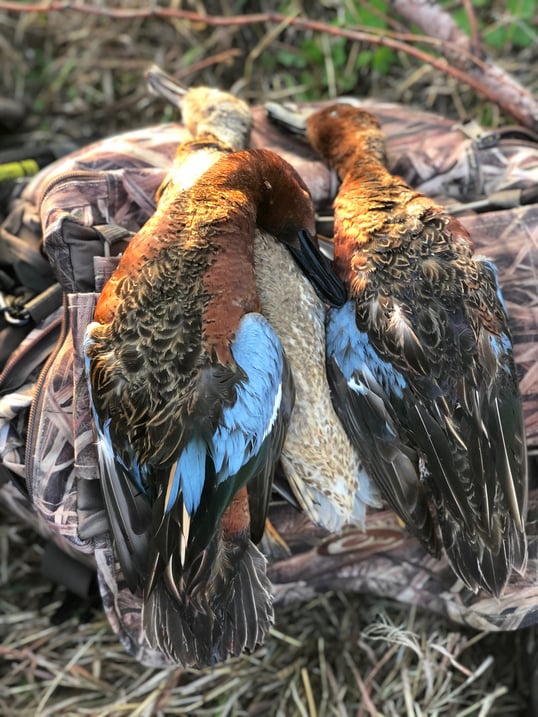
There are people who find waterfowl disgusting and gamey, while others consider it fine dining. In all fairness, ducks can be somewhat of an acquired taste, but some hunters just taste hot sauce. All jokes aside, the flavor of a duck can change depending on the area, preparation, and condition of the bird. That being said, there are a handful of ducks that consistently come out on top and take hunters to flavor town every fall.
1. Teal
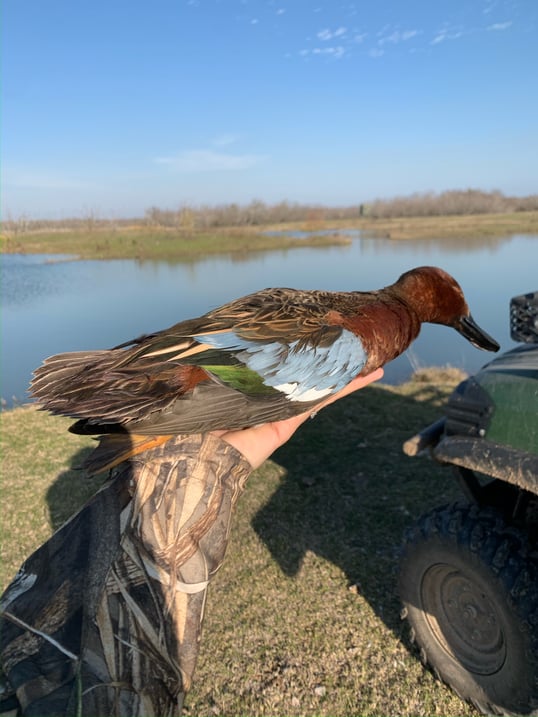
Teal are the real deal. These tiny birds are low-flying bullets out in the field, and exceptional on a plate. There are three different types of teal - cinnamon teal, green-winged and blue-winged. Teal are known across the country for mild flavor, modest size, and satiating fat. They can be plucked whole for a roast or breasted out and prepared in any number of ways. Whatever style you prefer, this delicate duck is delicious. If you get lucky early in the season and bag a lot of teal, don’t overlook the internal white fat on a healthy bird. Harvest the fat and use it in place of the cooking oil in your favorite recipes. It melts quickly, tastes great, and fattens up the otherwise lean meat.
2. Wood Duck

Wood ducks have a distinct flavor which is likely due to their diet of acorns, rice, aquatic vegetation, and bugs. While a flavor being distinct isn’t always a good thing, in the case of wood ducks it’s tasty. While their appearance is reason enough to fall in love with these birds, the taste alone drives many hunters to specifically seek them out every year.
3. Pintail
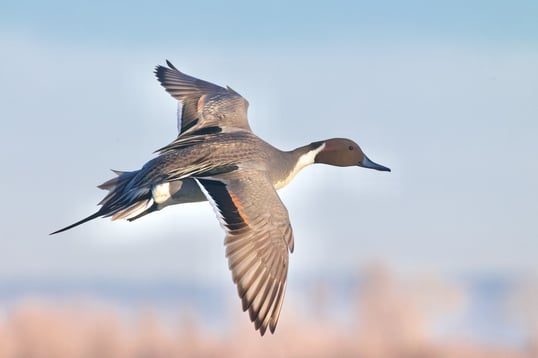
The classic bowling shape, unique vocalizations, and timidness toward decoy spreads make the pintail a favorite among waterfowlers everywhere. These ducks are incredibly fun to hunt but it’s their meat is a treat in its own right. Their surprisingly mild flavor secures their spot on the list of ducks too tasty to pass up. When cooking a pintail there’s no need to drown it in sauce or use strong spices. It’s hard to go wrong searing it in a hot pan or on the grill with a little salt and pepper. Simple preparations and subtle flavors are ideal for this duck and make for the perfect meal to convince skeptics.
4. Mallard

You can’t talk about eating ducks without mentioning greenheads. Mallards have to be North America’s most popular duck. Their widespread abundance, lack of caution around decoys, and chatty personalities will excite any duck hunter. However, the appeal doesn’t stop once the decoys are pulled, greenheads also make a great meal. Mallards do have a tinge of gamey flavor to them, but letting the meat rest in a brine or marinade is an easy fix. While teal breasts make for a modest portion, mallards are one of the larger, more plump ducks. A decent size mallard can weigh two or three pounds and provide plenty of meat for a meal.
5. Canvasback
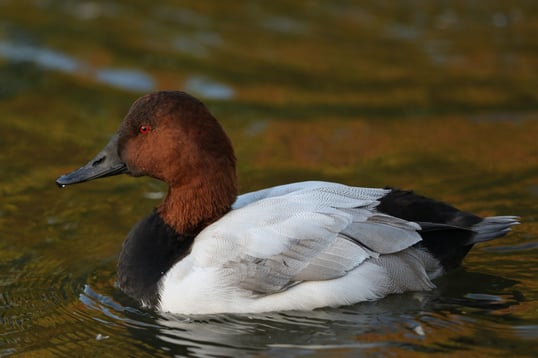
The canvasback has the propensity to be found belly-up on the dinner table. This species suffered a significant decline during the era of market hunting and did eventually recover. What was the reason for their initial decline? It’s delicious. Market hunters were paid well for canvasbacks from the late 1800s to the early 1900s. These birds were so well regarded that they often could be found in fancy New York restaurants. The canvasback has an elegant and sizable body which is how it became known as the “King of Ducks.”
Similar to bears or any other migratory bird, the flavor of a canvasback will change significantly depending on its diet. If you shoot one that has been flying along the coast eating clams and mussels, it might have a flavor more commonly associated with sea duck. On the other hand, canvasbacks feeding on vegetation without access to ocean-based food sources will taste more earthy. The variety of nuanced flavors that can be found in their meat is a tasty experience and likely part of their popularity.
Book Your Next Duck Hunting Trip
Ready to get out there and hunt some ducks? Find and book your next duck hunting trip online in minutes. We offer unmatched access to the best duck guides around and back it all up with some of the best customer service in the business.
Joey Butrus
Updated on December 14, 2023

July 31, 2024

April 26, 2022

July 1, 2024

June 28, 2023

October 26, 2020
Related Articles
October 5, 2022
October 23, 2022
October 22, 2022
Featured Locations
- Fishing Charters Near Me
- Austin Fishing Guides
- Biloxi Fishing Charters
- Bradenton Fishing Charters
- Cabo San Lucas Fishing Charters
- Cancun Fishing Charters
- Cape Coral Fishing Charters
- Charleston Fishing Charters
- Clearwater Fishing Charters
- Corpus Christi Fishing Charters
- Crystal River Fishing Charters
- Dauphin Island Fishing Charters
- Daytona Beach Fishing Charters
- Destin Fishing Charters
- Fort Lauderdale Fishing Charters
- Fort Myers Fishing Charters
- Fort Walton Beach Fishing Charters
- Galveston Fishing Charters
- Gulf Shores Fishing Charters
- Hatteras Fishing Charters
- Hilton Head Fishing Charters
- Islamorada Fishing Charters
- Jacksonville Fishing Charters
- Jupiter Fishing Charters
- Key Largo Fishing Charters
- Key West Fishing Charters
- Kona Fishing Charters
- Lakeside Marblehead Fishing Charters
- Marathon Fishing Charters
- Marco Island Fishing Charters
- Miami Fishing Charters
- Montauk Fishing Charters
- Morehead City Fishing Charters
- Naples Fishing Charters
- New Orleans Fishing Charters
- New Smyrna Beach Fishing Charters
- Ocean City Fishing Charters
- Orange Beach Fishing Charters
- Panama City Beach Fishing Charters
- Pensacola Fishing Charters
- Pompano Beach Fishing Charters
- Port Aransas Fishing Charters
- Port Orange Fishing Charters
- Rockport Fishing Charters
- San Diego Fishing Charters
- San Juan Fishing Charters
- Sarasota Fishing Charters
- South Padre Island Fishing Charters
- St. Augustine Fishing Charters
- St. Petersburg Fishing Charters
- Tampa Fishing Charters
- Tarpon Springs Fishing Charters
- Venice Fishing Charters
- Virginia Beach Fishing Charters
- West Palm Beach Fishing Charters
- Wilmington Fishing Charters
- Wrightsville Beach Fishing Charters
